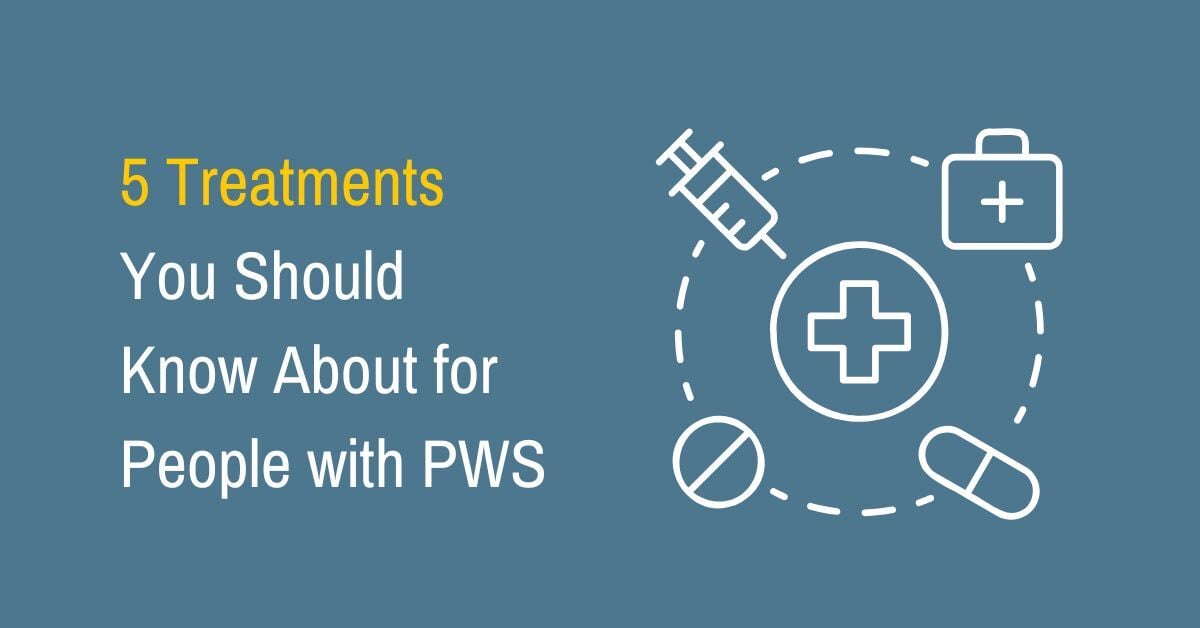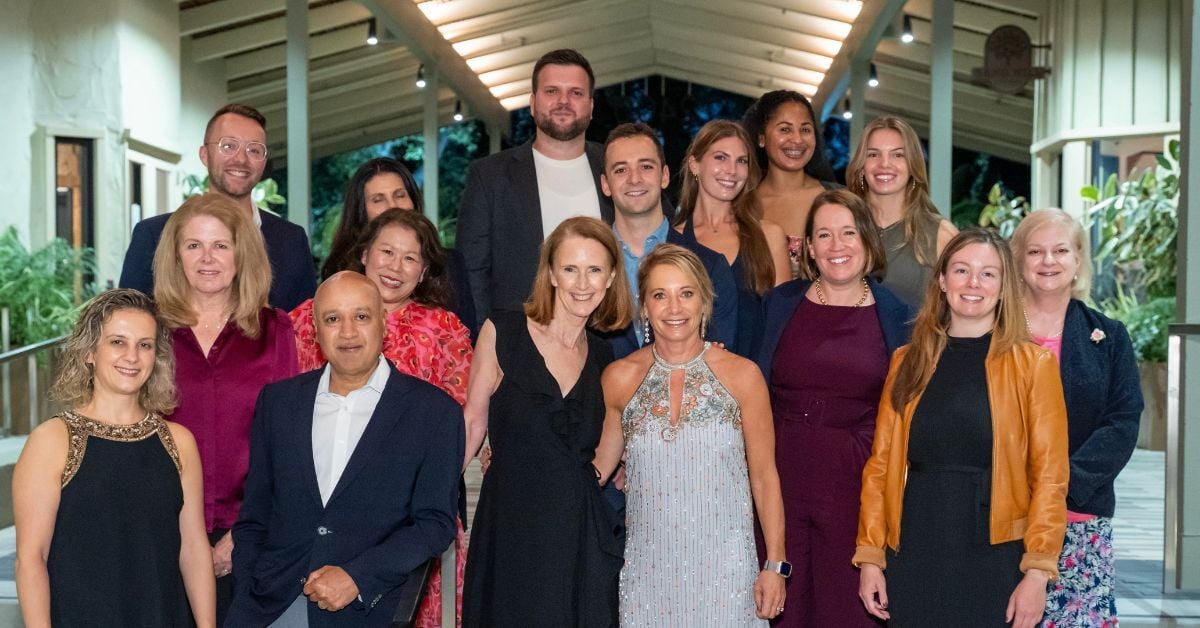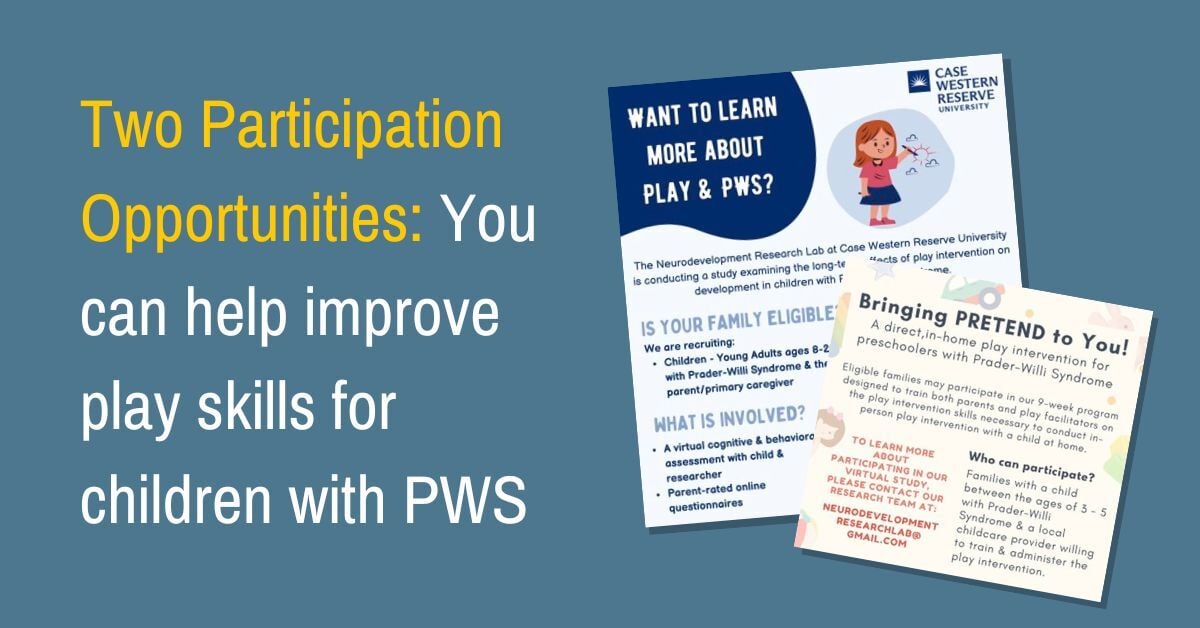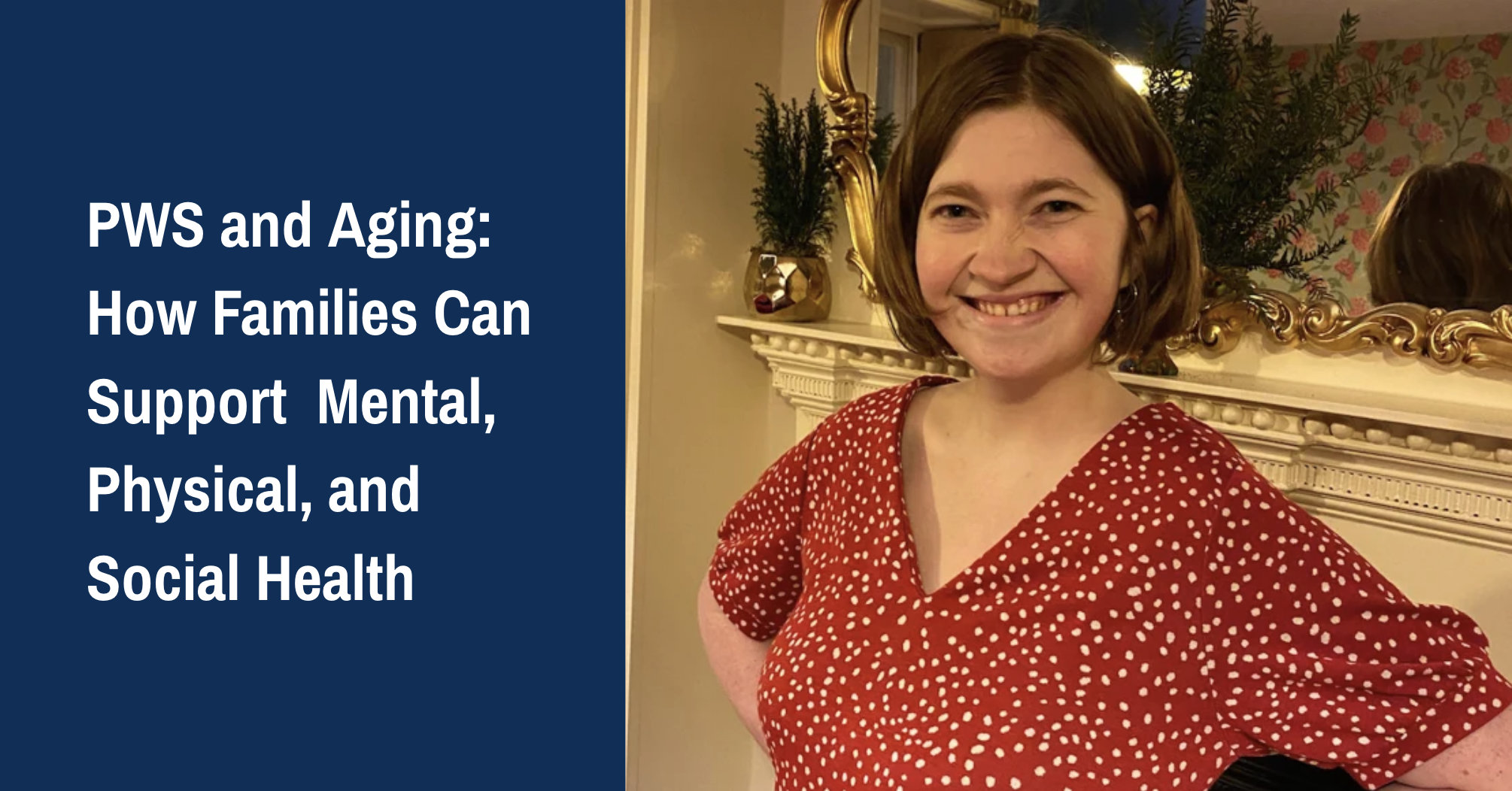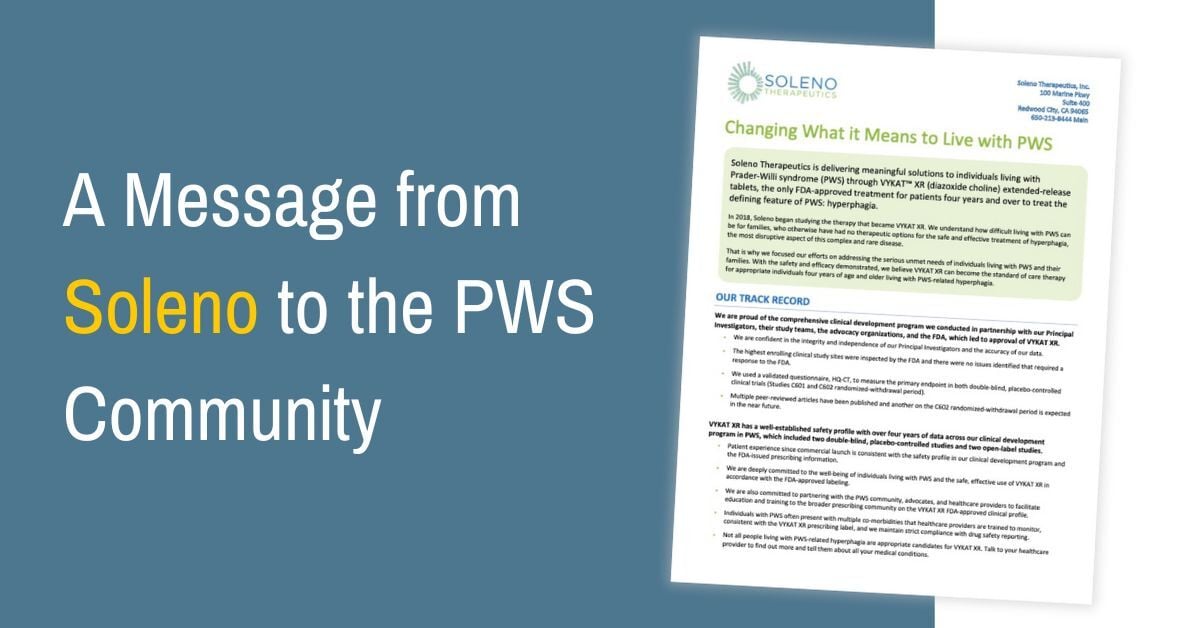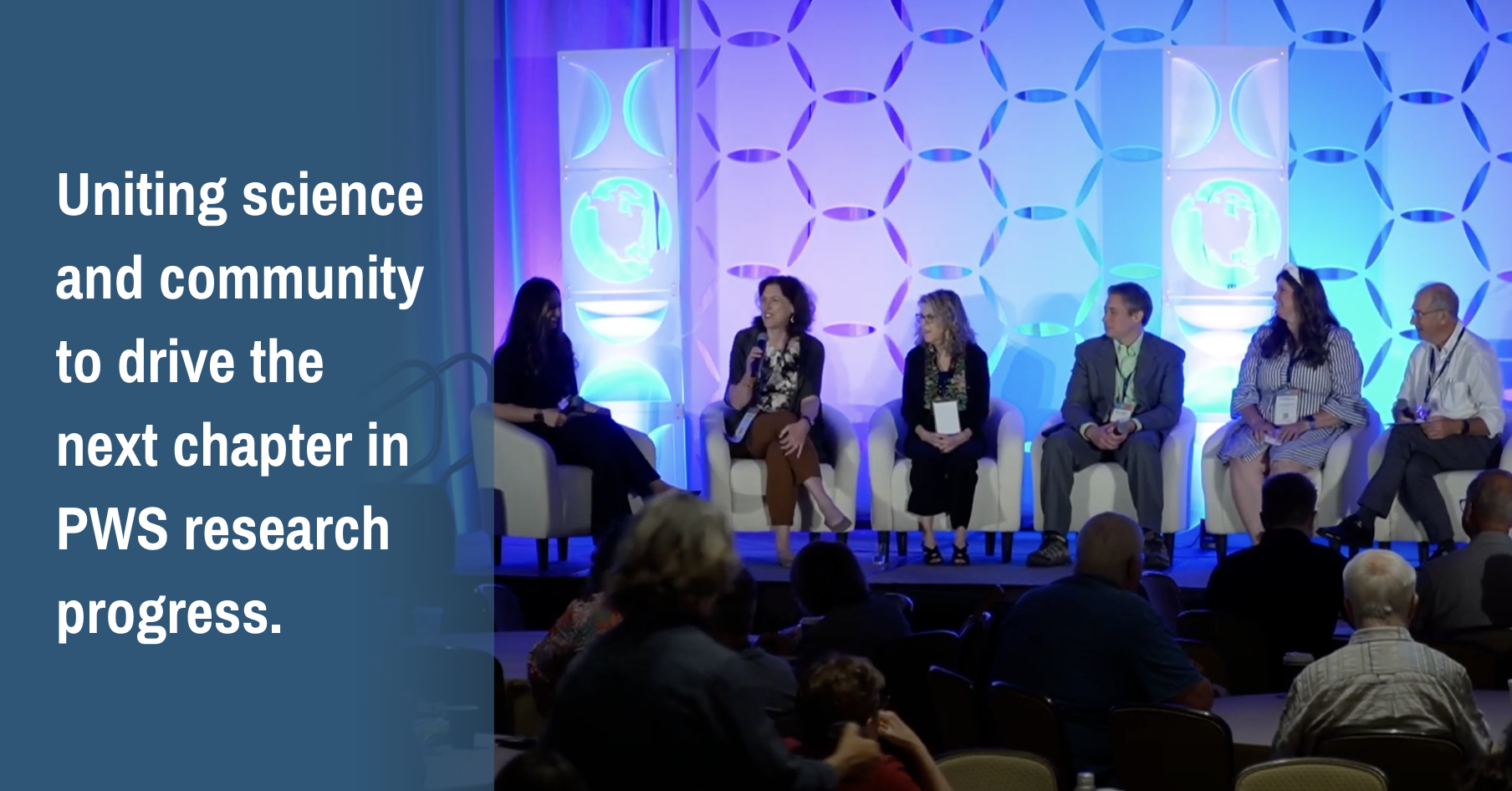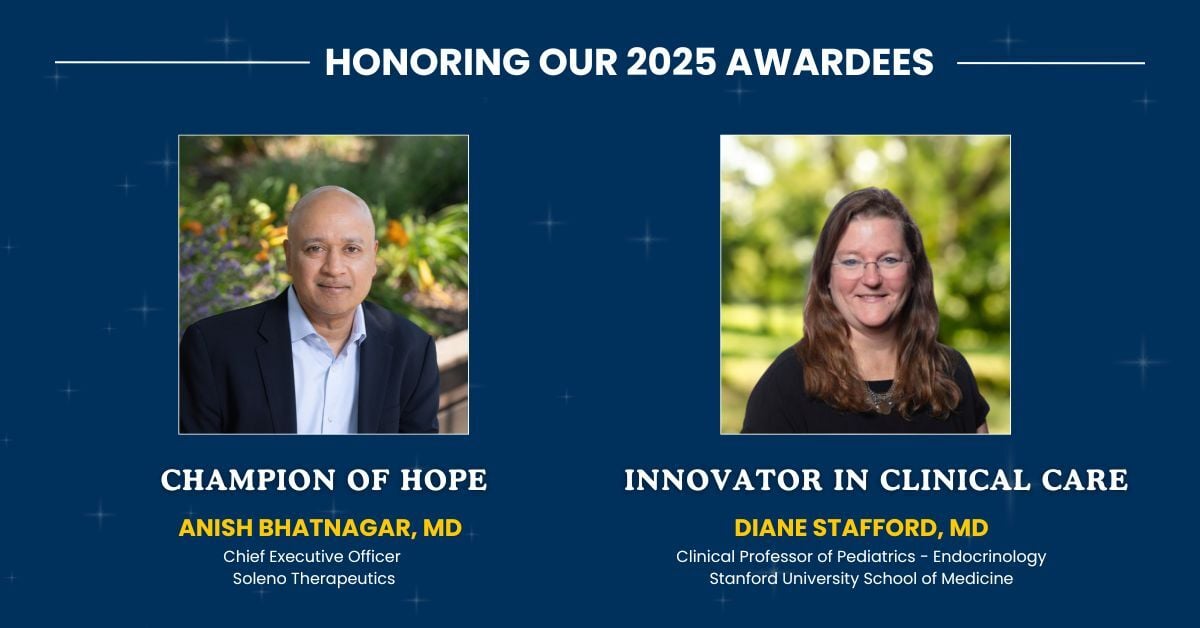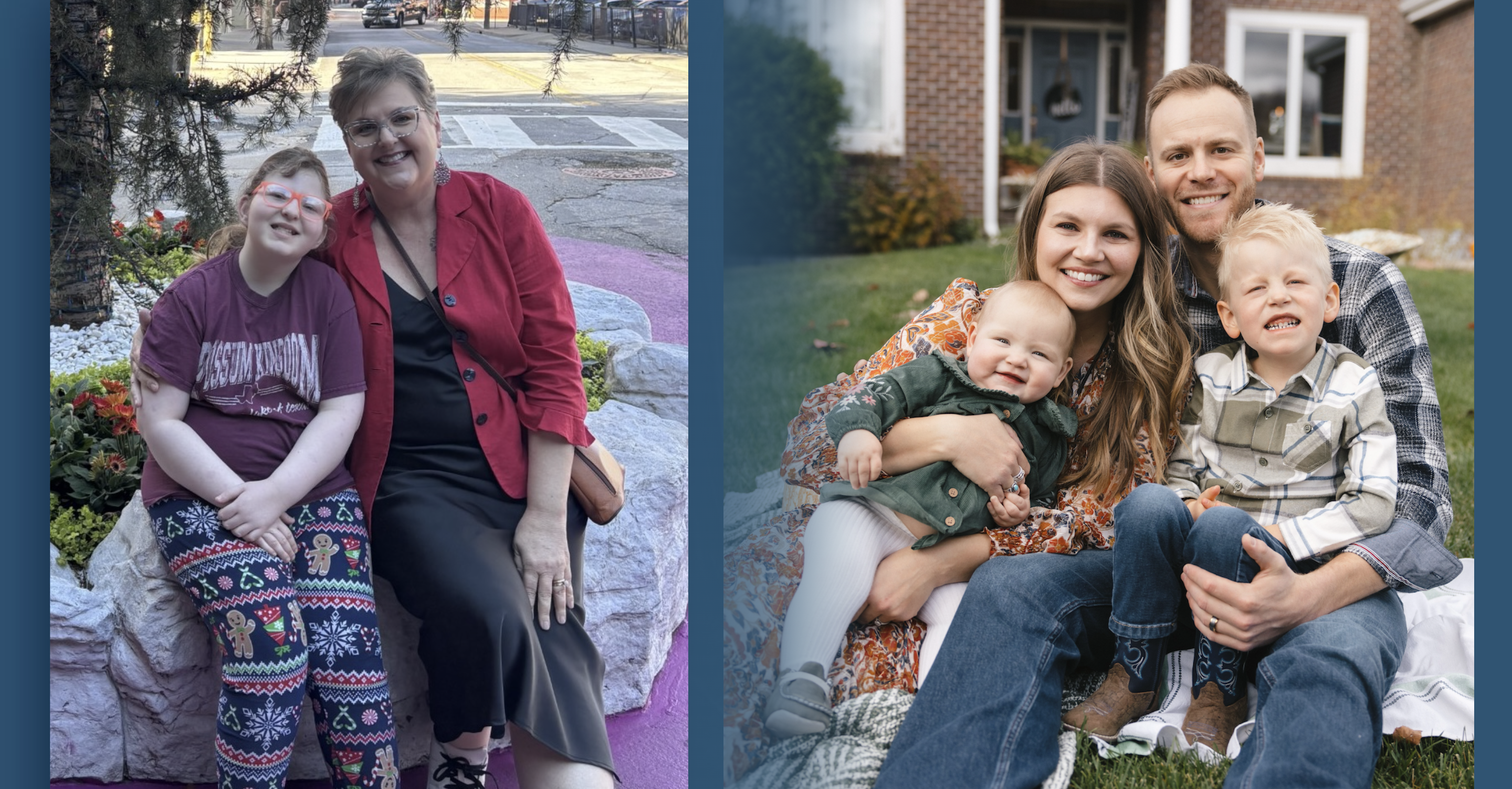FPWR
Recent Posts
FPWR is dedicated to advancing research and accelerating the development of safe and effective treatments for people with Prader-Willi syndrome (PWS). While significant unmet needs remain, there are several therapies—both established and emerging—tha...
Soleno Therapeutics is committing up to $5 million to accelerate progress toward a cure for Prader-Willi syndrome by funding groundbreaking genetic research.
Families of children with Prader-Willi syndrome (PWS), your participation has the power to make a real difference—not only for your own child, but for the PWS community at large. Below are two research studies currently recruiting through the Neurode...
We are saddened to share disappointing news from Acadia Pharmaceuticals. The Phase 3 COMPASS clinical trial evaluating intranasal carbetocin (ACP-101) in individuals with PWS did not meet its primary endpoint of reducing hyperphagia. The study also s...
Adults with Prader-Willi syndrome (PWS) can experience earlier-onset changes in health and daily functioning. During a 55‑minute presentation at the United in Hope PWS conference, Dr. Laura de Graaff (Erasmus MC, Rotterdam) discussed practical steps ...
Topics: Adults
A message from Soleno Therapeutics to our PWS Community:
Welcome to an inside look at some of the impactful research taking place to improve the lives of individuals with Prader–Willi syndrome (PWS). In this interview, four FPWR research team members—Theresa Strong, Lauren Schwartz-Roth, Marc Ridilla, and ...
Topics: Research
Each year, the Foundation for Prader-Willi Research (FPWR) recognizes outstanding individuals who have made a profound difference in the lives of those affected by Prader-Willi syndrome. This year, we honored two remarkable leaders for their contribu...
We’re excited to introduce two new members of the FPWR team: Karla Blair and Nicci Peterson! As parents, advocates, and passionate members of the PWS community, Karla and Nicci bring heartfelt commitment and a personal perspective to our work. Their ...
Topics: News




